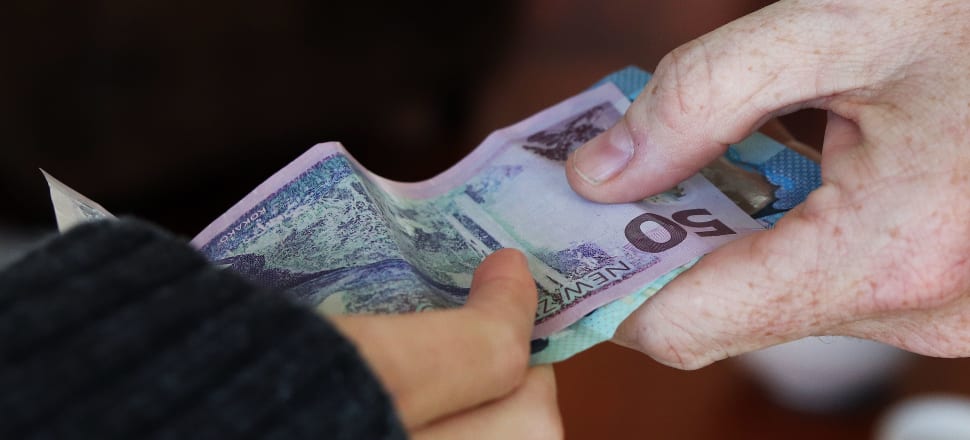
National's plan to let under-30-year-olds dip into their retirement fund for a rental bond is being described as an attack on KiwiSaver. Should we be letting youngsters derail their own savings?
Students often desperately need money for a rental bond, so is dipping into their KiwiSaver accounts the right place to go for it?
"I imagine it could be pretty helpful," one student at Auckland University tells The Detail.
"When you study, it's a bit hard to save a few grand for a bond. You kind of have to only do it over summer, which can be a bit of a drag," he continues.
"One of the biggest reasons that people aren't able to afford apartments is because they usually ask for rent – I think it's like the first two weeks of rent – and a $2,000 bond depending on the area you're living in and the type of housing you're having," another student says.
BusinessDesk's investments editor Frances Cook says as a student, she would've supported the National Party's proposal too.
"When I was a student I also signed up for overdrafts and credit cards and I was too busy focused on trying to get through today to think about tomorrow ... but that's because I was bad with money," she says.
But now she thinks it's "one of the most financially irresponsible ideas I've heard suggested".
"It is attacking KiwiSaver at a time it will have the biggest impact. [If] you take out even just $800 from a KiwiSaver when you're young ... a conservative estimate of what that could cost you by the time you're 65 is $16,800.
"If you open up KiwiSaver for every problem, then you have no retirement savings anymore and we have a looming crisis of poverty."
But Mary Holm – a financial journalist and KiwiSaver expert who contributes to NZ Herald and RNZ – thinks calling the bond scheme financially irresponsible is "extreme".
"You are missing out on the growth on that money, but it's not a big amount. This proposal is not stupid, because the money's going back into KiwiSaver ... it's not lost forever.
"But nonetheless, it does mean you will have a bit less retirement money and perhaps more importantly, it complicates KiwiSaver. It's already quite a complicated creature – and that makes me worry that people don't really understand the basics of it and stop contributing."
However, not all renters get their bond money back, so Holm says they have to be careful.
"The money that people put into KiwiSaver in their teens and twenties is such valuable money. It's incredible how much that money multiplies by the time you're 65 ... losing money in those early years, if it doesn't ever come back in again, is a real pity."
But there could be a better solution, which Holm says she worked on with the retirement commission: a "sidecar" account.
Employees normally put (a minimum of) 3 percent into KiwiSaver. They'd be given the chance to put in 4 percent instead, with the extra going into the "sidecar" account.
"Once it hits $3,000, it would stop and if you continue to put the extra money in it would go into your ordinary KiwiSaver, the point being that there'd be $3,000 there that you could use in emergencies – a lot easier to get out than the current hardship withdrawals."
Cook also supports this idea.
"Most people would not notice [it] coming out of their pay packet each week ... you could access [it] for things like bonds or emergencies or a car breakdown. Now, in an ideal world, we all do that savings account ourselves. I can tell you from the conversations that I have with people all the time that people really really struggle to do that automatically and the great thing about KiwiSaver is it's automatic, it does that for you.
"The reason that works is it doesn't attack the overall purpose of KiwiSaver, it adds to it, it strengthens it."
Listen to the full episode for the arguments for and against this change, and for suggestions on how else the scheme should evolve.
Check out how to listen to and follow The Detail here.
You can also stay up-to-date by liking us on Facebook or following us on Twitter.








